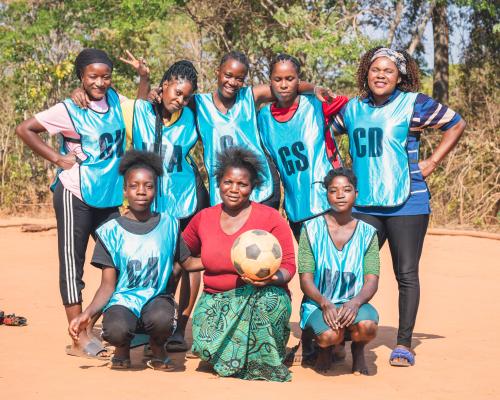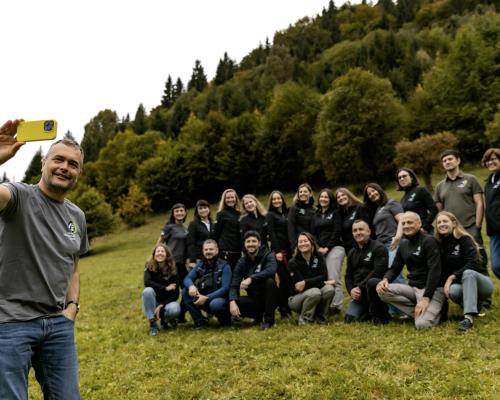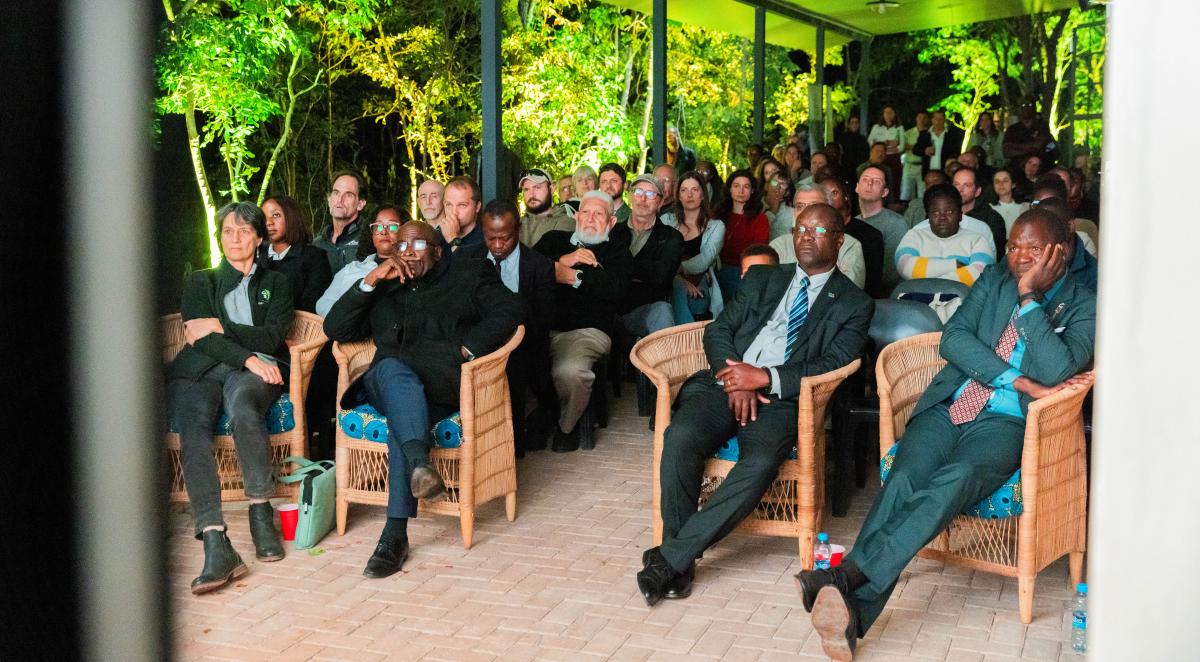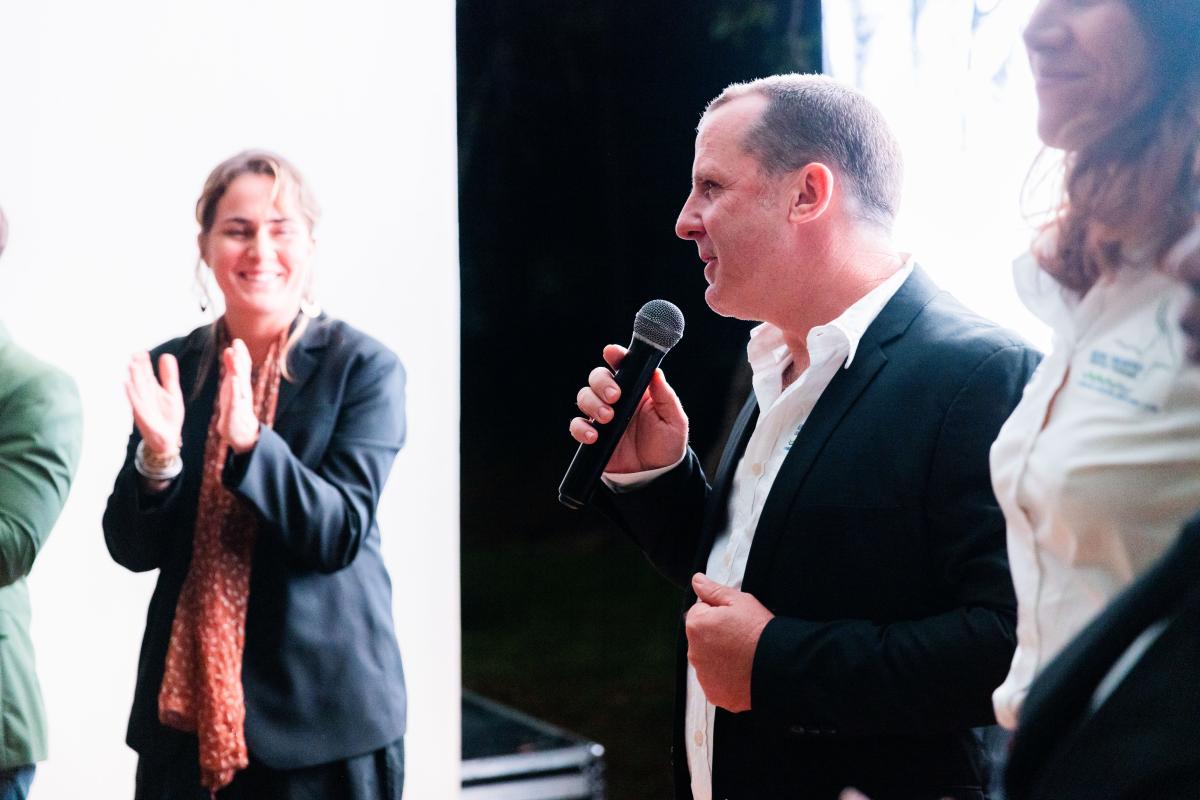What does it take to recover an ecosystem? Can the return of a species revive cultural identity and build pride in a landscape? “Abashimba – Return of Lions to Nsumbu” celebrates conservation collaboration, and offers an intimate look at the science, partnerships, and people behind this ecosystem’s revival.
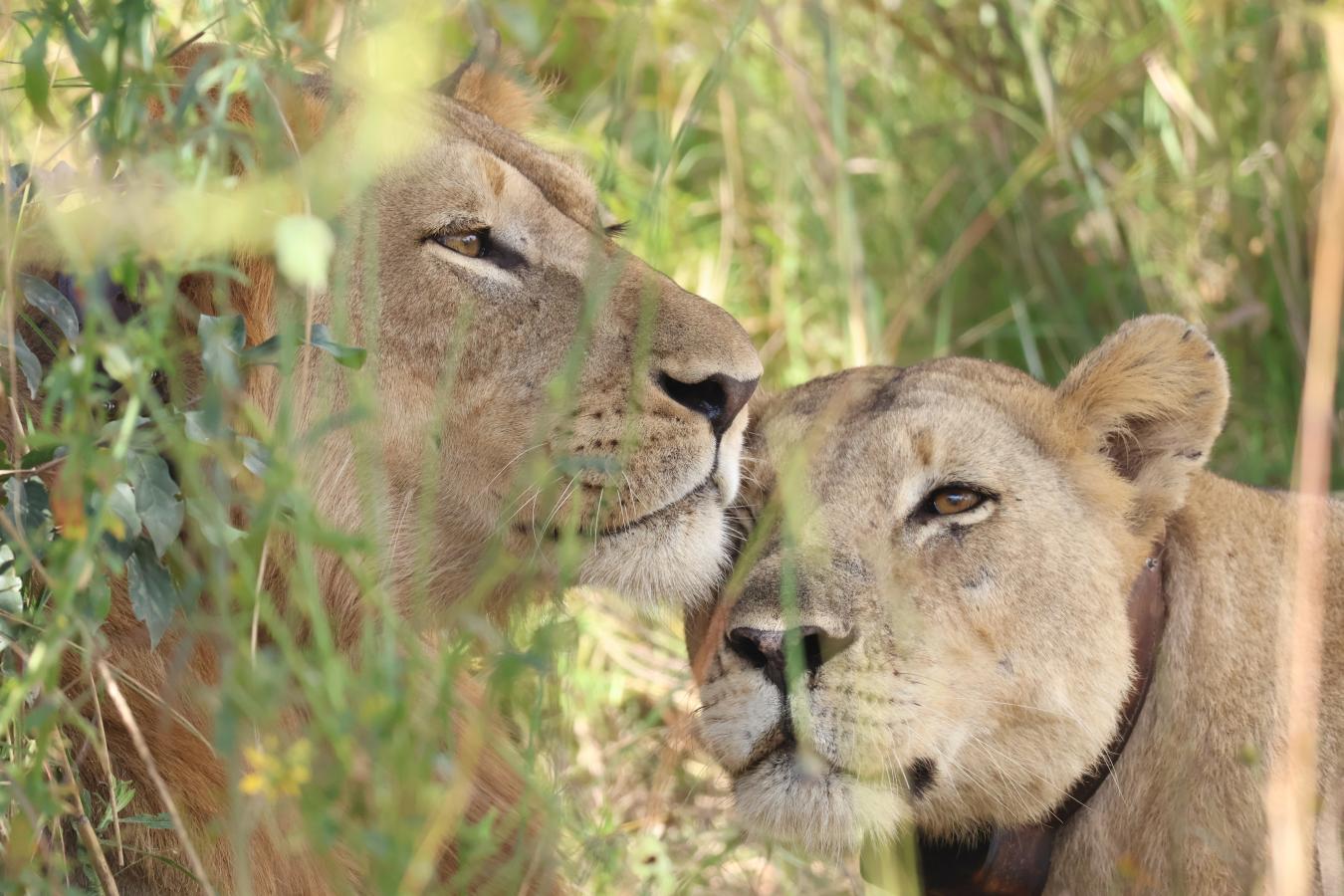
Documentary Chronicles Landmark Lion Reintroduction in Zambia’s Nsumbu National Park
On 18 September 2024, three lions were translocated from North Luangwa National Park to Nsumbu National Park by the Nsumbu Tanganyika Conservation Programme, a collaboration between Zambia’s Department of National Parks and Wildlife (DNPW) and the Frankfurt Zoological Society (FZS). The move, done in collaboration with the Zambia Carnivore Programme (ZCP) has seen the founder population adapt well to their new home and they are currently being closely monitored by conservation teams.
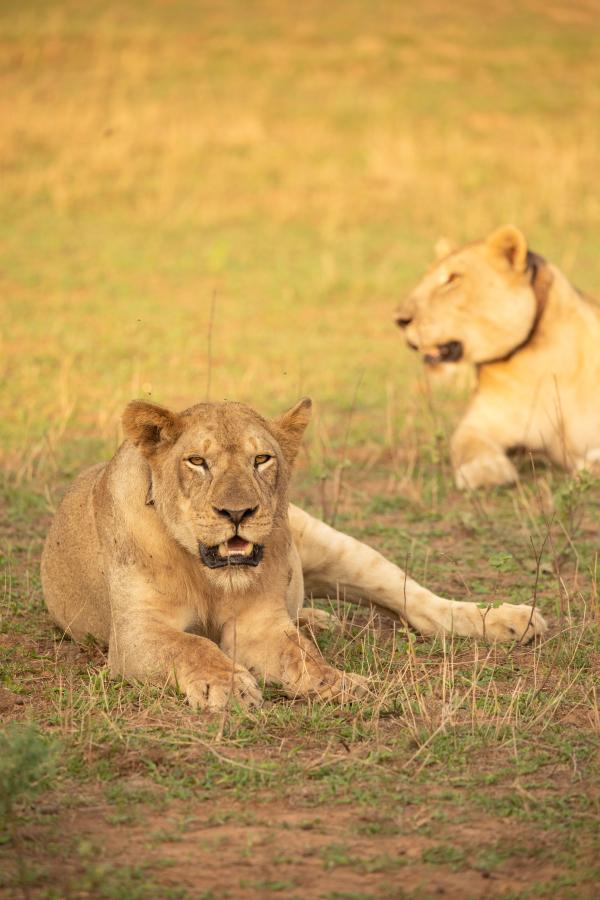
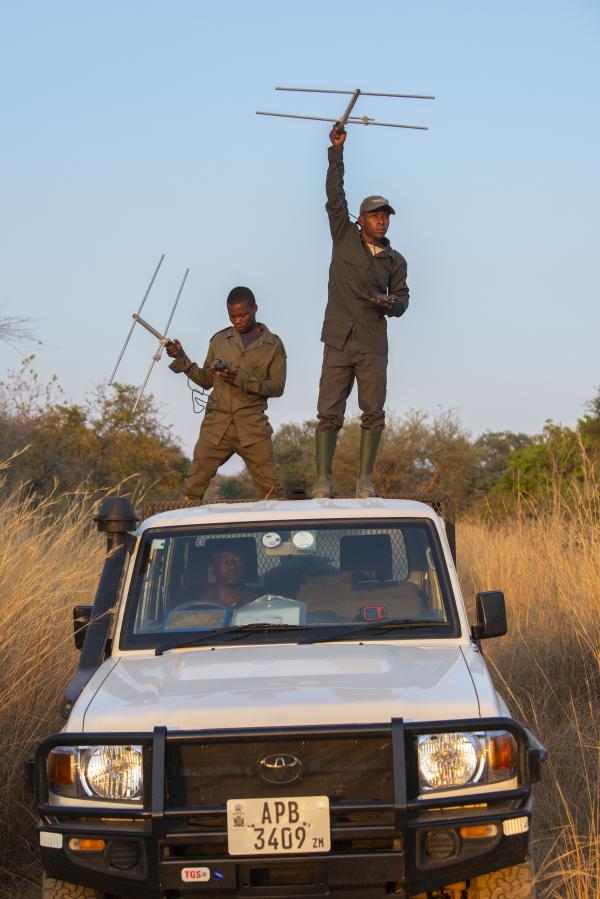
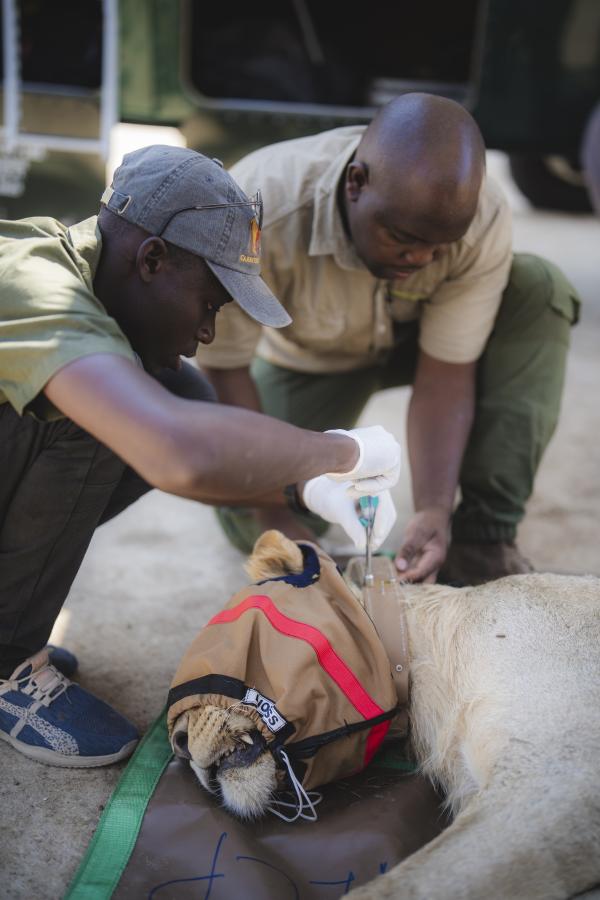
Nsumbu National Park, a remote and wild ecosystem tucked between the great lakes of Tanganyika and Mweru in northern Zambia, experienced significant declines in wildlife at the turn of the century. Widespread poaching through use of firearms and wire snares depleted prey species and drove lions to local extinction. Now, after years of ecosystem recovery, careful planning and coordinated conservation, lions once again roam the shores of Lake Tanganyika. A newly released documentary, Abashimba – the Return of Lions to Nsumbu, tells this interwoven story of community participation and renewed hope for large carnivores in the wider Nsumbu-Tanganyika Ecosystem.
This is a landmark moment for Zambia’s conservation legacy. The return of lions is a signal that the ecosystem is recovering and that people and wildlife can co-exist when we invest in the right partnerships.
Reintroducing apex predators is a complex undertaking. It requires not only ecological readiness, but also strong community engagement and long-term support. The lion reintroduction was made possible through the backing of key donors, including the Wildlife Conservation Network’s Lion Recovery Fund, the Wyss Foundation, and the Wildcat Foundation.
The success of the reintroduction effort is inseparable from the support of local communities. As the Zambian Carnivore Programme’s Matt Becker explains, without addressing the causes of the species’ original decline, reintroduction would only repeat the cycle of loss. While the translocation itself must be carefully managed, success hinges on ensuring that the communities living alongside the wildlife – and bearing the costs when conflict arises – are fully engaged and supported. It also depends on strong collaboration and effective partnerships. Traditional leadership, local communities, students, and employees from the area were involved from the outset. For many residents, this marks the first time in their lives they’ve seen lions in the wild. Yet for the Tabwa people, lions have always held cultural significance – the royal family identifies as Abashimba, or the “Clan of the Lions.”
Community-led stewardship is central to the initiative. Monitoring and protection teams trained by NTCP continue to monitor lion movements and support human-wildlife conflict mitigation, environmental education, and livelihood programmes.
The story of Abashimba is not our story of Nsumbu, of the NTCP or FZS – it is small chapter in the story of how community and nature are connected, and for me the community support and acceptance before the return of lions is something I feel very proud of.
The documentary Abashimba – Return of Lions to Nsumbu, produced by Zambia-based Conservation Connect Films, tells the full story of this conservation milestone, from tranquilizing lions deep in the Luangwa valley to engaging community leaders in lakeside villages. It offers a rare, behind-the-scenes look at what it takes to bring back an apex predator to a recovering landscape.
Whilst the wildlife and landscapes are what bring us together and give us focus it’s the people that make the magic happen – this has always been a story worth telling, it is an opportunity for people to be proud of their heritage, culture, and work.
The film premiered in Lusaka in July and is now available for national and international audiences. A Bemba-language version has already been screened in 16 schools and communities across the Nsumbu landscape, reaching over 1,000 students.
As lions once again move through Nsumbu’s wild heart, their presence echoes across generations, restoring not only ecological balance but also cultural pride and a shared vision for the future.
A technical committee of experts, coordinated by DNPW’s Research and Veterinary Unit, has carefully planned the lion reintroduction following international best practice, including a reintroduction plan and road map. In line with this plan, ensuring that the ecosystem and the predator prey base is adequately recovered to support lions has been a priority.
Ecological monitoring has been conducted since 2020 to track ecosystem restoration. In June 2021, 200 buffalo and 48 zebras were successfully translocated to Nsumbu National Park from North Luangwa, to boost the remnant populations in the area.
With this translocation and the ongoing bolstered conservation efforts, monitoring results show that potential prey species for lion occur widely in Nsumbu National Park and Tondwa Game Management Area at moderate to high densities, and are adequate to support a recovering lion population.
The Nsumbu Tanganyika Conservation Programme (NTCP) is a long-term partnership between the Frankfurt Zoological Society and Zambia’s Department of National Parks and Wildlife. Within the Nsumbu-Mweru landscape the NTCP works with multiple partners including the Nsama Community Resource Board and Conserve Global’s Tondwa Conservation Limited.
You are currently viewing a placeholder content from Default. To access the actual content, click the button below. Please note that doing so will share data with third-party providers.
More Information





